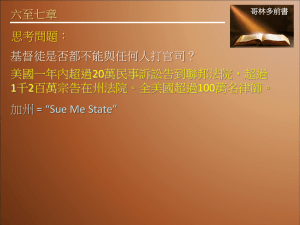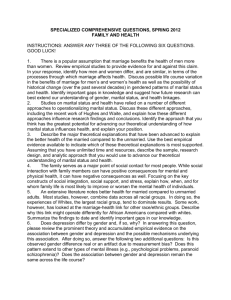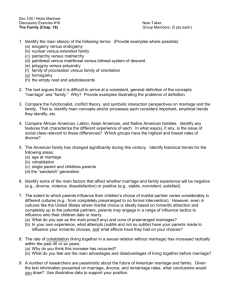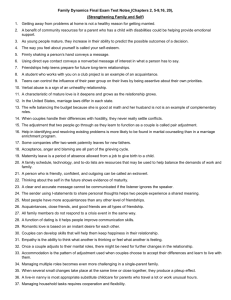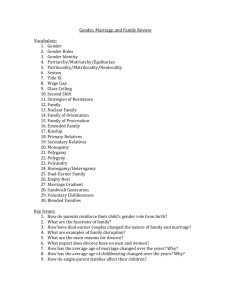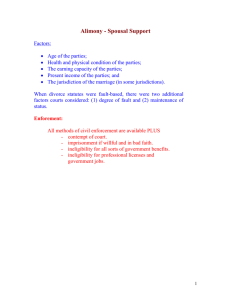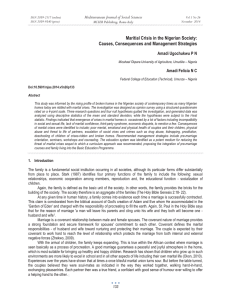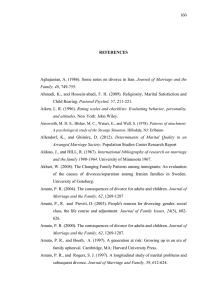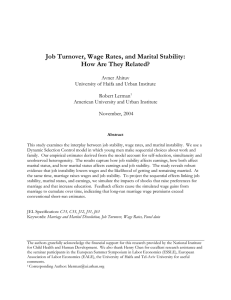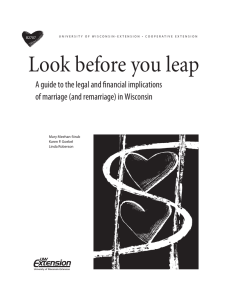Chabot College Fall 2002 Course Outline for Sociology 4
advertisement
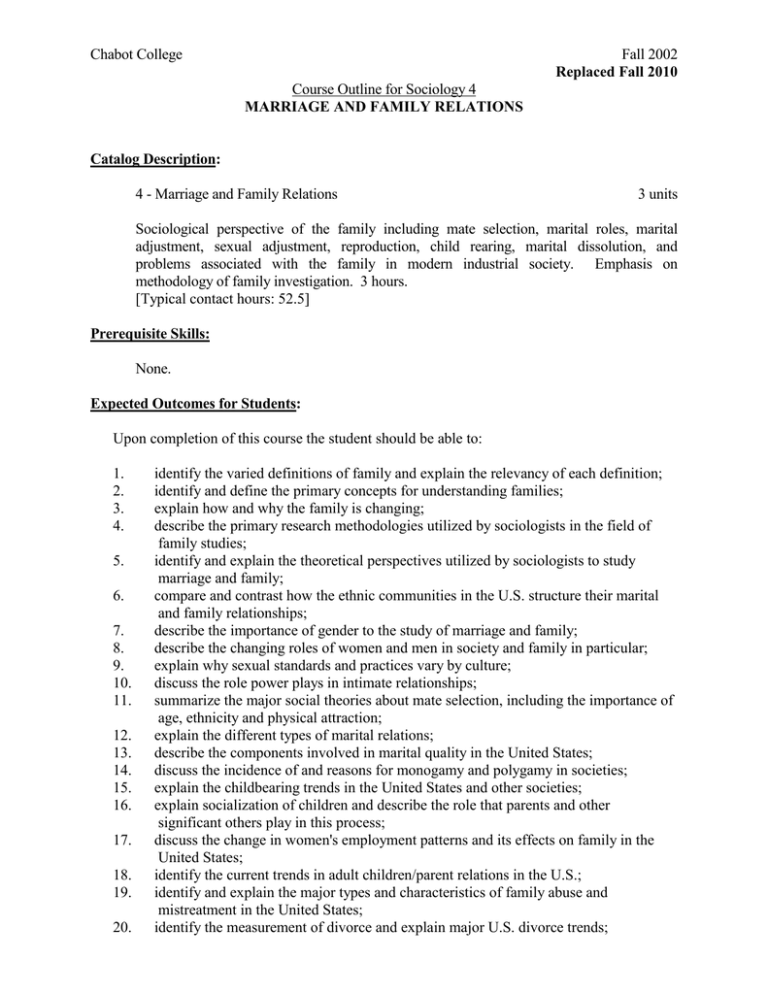
Chabot College Fall 2002 Replaced Fall 2010 Course Outline for Sociology 4 MARRIAGE AND FAMILY RELATIONS Catalog Description: 4 - Marriage and Family Relations 3 units Sociological perspective of the family including mate selection, marital roles, marital adjustment, sexual adjustment, reproduction, child rearing, marital dissolution, and problems associated with the family in modern industrial society. Emphasis on methodology of family investigation. 3 hours. [Typical contact hours: 52.5] Prerequisite Skills: None. Expected Outcomes for Students: Upon completion of this course the student should be able to: 1. 2. 3. 4. 5. 6. 7. 8. 9. 10. 11. 12. 13. 14. 15. 16. 17. 18. 19. 20. identify the varied definitions of family and explain the relevancy of each definition; identify and define the primary concepts for understanding families; explain how and why the family is changing; describe the primary research methodologies utilized by sociologists in the field of family studies; identify and explain the theoretical perspectives utilized by sociologists to study marriage and family; compare and contrast how the ethnic communities in the U.S. structure their marital and family relationships; describe the importance of gender to the study of marriage and family; describe the changing roles of women and men in society and family in particular; explain why sexual standards and practices vary by culture; discuss the role power plays in intimate relationships; summarize the major social theories about mate selection, including the importance of age, ethnicity and physical attraction; explain the different types of marital relations; describe the components involved in marital quality in the United States; discuss the incidence of and reasons for monogamy and polygamy in societies; explain the childbearing trends in the United States and other societies; explain socialization of children and describe the role that parents and other significant others play in this process; discuss the change in women's employment patterns and its effects on family in the United States; identify the current trends in adult children/parent relations in the U.S.; identify and explain the major types and characteristics of family abuse and mistreatment in the United States; identify the measurement of divorce and explain major U.S. divorce trends; Chabot College Course Outline for Sociology 4 Fall 2002 Page 2 Excepted Outcomes for Students (Cont'd): 21. explain the factors associated with divorce in the United States; 22. identify the major external and internal stresses for family relations 23. describe how public policy assists, controls and changes family patterns. Course Content: 1. 2. 3. 4. 5. The study of marriage and family a. Methodology b. Cross cultural comparisons c. Historical perspective d. Contemporary marriage and family e. Definitions Mate selection a. Differences in sex roles b. Dating patterns c. Premarital sex behavior d. Engagement and wedding Basic components of marital adjustment a. Role, personality, communication, sexual, economic b. Parent-child relationships c. Empty nest and retirement phases Conflict, crisis, dissolution a. Marital conflict and family crisis b. Bereavement, separation and divorce The future of marriage and family Methods of Presentation: 1. 2. 3. 4. Lecture - discussion Guest speakers Audio-visual aids Student reports Assignments and Methods of Evaluating Student Progress: 1. Typical Assignments a. Construct a family genogram focusing on family interaction patterns b. Draw a cost analysis of having a child from conception through college based on your projected profession/life style c. Write a two page essay explaining the emotional, psychological and social effects of divorce d. Select a current newspaper article that discusses family and public policy, explain the intended and possible latent functions of the policy in a two page paper Chabot College Course Outline for Sociology 4 Fall 2002 Page 3 Assignments and Methods of Evaluating Student Progress (Con't): e. 2. Prepare for in class-discussions groups-describe the U.S. family of 2050. Support your predictions with data, theory, trends, etc. Present to the class. Methods of Evaluating Student Progress a. Exams and quizzes b. Exercises c. Projects d. Group discussion/assignments e. Final exam Textbook(s) Typical): Marriages and Families: Changes, Choices, and Constraints. Benokraitis, Nicole, Prentice Hall, 2001, or latest edition. Special Student Materials: None. tf:/A;\Word\SOC4.DOC Revised-2-4-2002

